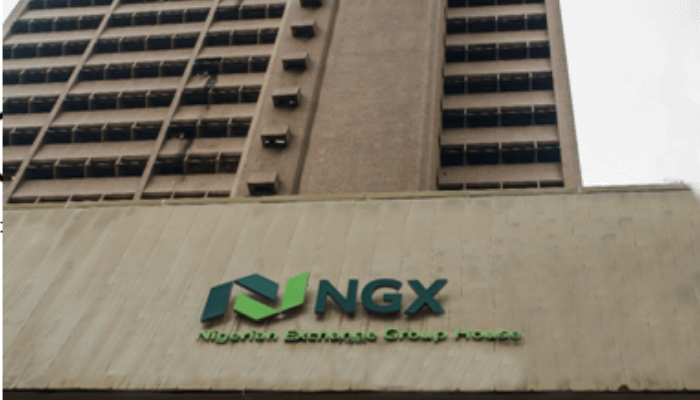Nigeria’s equities market ended last week on a positive trajectory, with investors recording a combined gain of about ₦822 billion. The impressive rally reflected renewed optimism in the financial markets, buoyed by improving macroeconomic conditions, stabilising foreign exchange rates, and stronger-than-expected corporate earnings across major sectors. The development highlights a resurgence of confidence in Nigeria’s capital market, which had witnessed mixed sentiments in previous weeks due to inflationary concerns and global market uncertainties.
Figures released by the Nigerian Exchange (NGX) show that the market capitalization rose from ₦55.20 trillion at the start of the week to ₦56.02 trillion, marking a weekly growth of 1.5 per cent. Similarly, the All-Share Index (ASI) advanced, reflecting strong momentum in banking, consumer goods, oil and gas, and industrial sectors. Market analysts attributed the sustained rally to a blend of factors, including the moderation of inflationary pressures, investors’ anticipation of monetary policy easing, and growing foreign participation in the domestic equities space.

One of the major drivers of the rally was the banking sector, which saw increased demand for Tier-1 banking stocks. Following the release of half-year earnings, several banks reported double-digit growth in profitability and declared interim dividends that attracted both institutional and retail investors. The resilience of the sector, despite operating in a high-interest-rate environment, reinforced confidence in the banking industry’s role as a cornerstone of Nigeria’s financial system. Analysts noted that banks are increasingly leveraging digital platforms and expanding lending to productive sectors, thereby boosting their earnings outlook.
The consumer goods sector also played a pivotal role in the week’s positive performance. Companies such as Nestlé Nigeria, Dangote Sugar, and Nigerian Breweries saw significant investor interest, driven by expectations of improved earnings as production costs ease. While inflation remains elevated, the gradual stabilisation of the naira has provided relief for companies heavily reliant on imported inputs. Investors are betting on the long-term resilience of Nigeria’s consumer market, supported by a large population and rising demand for fast-moving consumer goods.
In the oil and gas sector, positive sentiment was underpinned by continued progress at the Dangote Refinery, which has raised hopes of reduced dependence on imported petroleum products. The refinery’s operations are expected to significantly improve the country’s foreign exchange balance and ease pressure on the naira. This optimism, coupled with relatively stable global crude prices, drove demand for select oil and gas equities. Market watchers believe that the sector remains one of the key growth areas for the Nigerian Exchange in the medium to long term.
The industrial goods sector also recorded gains, particularly in cement and construction-related stocks. Companies in this space are benefiting from government-led infrastructure projects and increased private sector investments. With demand for cement and building materials remaining strong, firms like Dangote Cement and BUA Cement continue to attract investors seeking long-term value.
Beyond the sectoral contributions, analysts observed that overall market sentiment was boosted by macroeconomic data suggesting that inflationary pressures may be easing. According to recent reports, food inflation—one of the key drivers of overall inflation—has shown signs of moderation due to targeted government interventions to boost agricultural output and reduce supply bottlenecks. Investors interpret this trend as a potential signal that the Central Bank of Nigeria (CBN) could soon adjust its monetary stance by reducing policy rates, which would further increase liquidity in the equities market.
Foreign investor participation also improved during the week, following recent measures by the CBN to enhance transparency in the foreign exchange market and ensure naira stability. Greater liquidity and reduced volatility in the forex market have begun to restore foreign investors’ confidence, leading to a gradual return of offshore funds into the Nigerian equities market. This inflow has provided additional momentum for local investors, reinforcing the bullish sentiment.
Despite the positive trajectory, analysts caution that risks still linger. Inflation, although showing early signs of moderation, remains high and continues to erode consumer purchasing power. Additionally, uncertainties in global markets, particularly fluctuations in oil prices and shifts in international monetary policy, could influence the flow of foreign capital into emerging markets like Nigeria. Domestic structural challenges, including energy costs and security concerns in some regions, also remain potential headwinds for sustained growth.
Nevertheless, the ₦822 billion gain in a single week represents a milestone for the equities market, which is gradually re-establishing itself as a critical barometer of Nigeria’s economic stability. The rally signals that investors, both local and foreign, are increasingly optimistic about the government’s reform agenda and its potential to restore sustainable growth.
For many companies, the robust equities market provides an opportunity to raise fresh capital for expansion, reduce borrowing costs, and attract new partnerships. For investors, it signals improved wealth creation, stronger portfolio returns, and renewed trust in the Nigerian Exchange as a platform for value creation.
Looking ahead, market participants are closely watching the outcome of forthcoming policy decisions, corporate earnings announcements, and global economic developments. If inflation continues to trend downward and the CBN signals a gradual easing of monetary policy, analysts believe the equities market could sustain its upward momentum in the final quarter of the year.
In conclusion, the Nigerian equities market’s ₦822 billion gain in one week reflects not only the resilience of the market but also the renewed optimism surrounding the broader economy. With reforms taking root, corporate earnings holding steady, and investor sentiment strengthening, the NGX appears well-positioned for continued growth. While challenges remain, the outlook is largely positive, underscoring the potential of the Nigerian stock market to play a pivotal role in driving economic recovery and supporting national development.
Support InfoStride News' Credible Journalism: Only credible journalism can guarantee a fair, accountable and transparent society, including democracy and government. It involves a lot of efforts and money. We need your support. Click here to Donate
